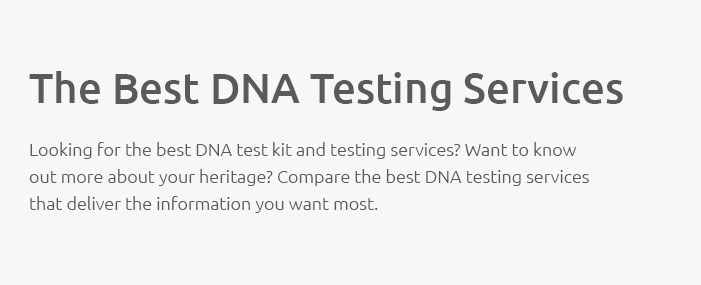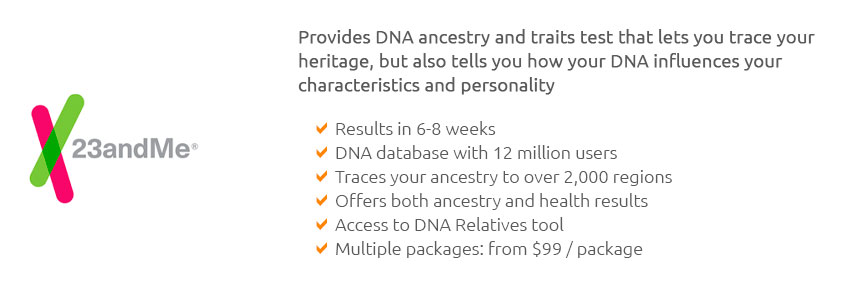 |
 |
 |
|---|
 |
 |
|---|
 |
|
|---|---|
 |
 |
 |
 |
 |
 |
 |
 |
 |
 |
 |
 |
 |
 |
 |
 |
|---|
The Best Y DNA Ancestry Test: Navigating Your Genetic HeritageIn the ever-expanding world of genealogy, Y DNA ancestry tests have emerged as a popular tool for individuals eager to unravel the mysteries of their paternal lineage. While autosomal DNA tests offer a broader view of one's ancestry, focusing on both maternal and paternal sides, Y DNA tests zero in on the direct male line, tracing the Y chromosome passed from father to son. This specificity provides a unique lens through which to view one's heritage, but it also requires a bit more understanding to navigate effectively. To help guide you in your quest, we delve into the nuances of choosing the best Y DNA ancestry test, spotlighting common mistakes to avoid and offering subtle insights to enrich your journey. First and foremost, it's crucial to recognize that not all Y DNA tests are created equal. Various companies offer different levels of testing, ranging from basic to advanced, with the number of markers tested being a key differentiator. A fundamental mistake many make is opting for a test that examines too few markers, which can lead to less precise results. Ideally, you want a test that analyzes at least 37 markers, as this provides a more robust and accurate picture of your paternal lineage. As you move up to tests that examine 67 or even 111 markers, the level of detail and confidence in your results increases significantly. Moreover, when selecting a Y DNA test, consider the database size of the company offering the test. A larger database enhances the likelihood of finding meaningful matches, as more individuals have their DNA stored and available for comparison. Companies like FamilyTreeDNA are renowned for their extensive databases and comprehensive testing options, making them a preferred choice for many enthusiasts. However, even the most extensive databases have limitations, and it's wise to manage expectations about discovering famous ancestors or linking to historical figures directly. Another key consideration is the integration of Y DNA results with genealogical records. Some testing companies provide tools that allow you to integrate DNA results with traditional genealogical data, offering a more complete picture of your ancestry. This can be particularly valuable if you're building a family tree, as it allows you to corroborate genetic findings with documentary evidence. It's also worth noting that Y DNA testing is limited to tracing the paternal line and cannot provide insights into maternal ancestry or the more comprehensive view offered by autosomal tests. Therefore, for those seeking a more holistic understanding of their genetic makeup, a combination of Y DNA, mtDNA (for maternal line), and autosomal tests might be considered. This trifecta can offer a well-rounded perspective on one's ancestry, though it does require a greater investment of both time and resources. Finally, a subtle yet significant aspect of selecting the best Y DNA test is understanding the privacy policies of the company you choose. With growing concerns about genetic privacy, it's imperative to ensure that your data is protected and that you have control over how it's used. Reviewing a company's privacy policy and terms of service can provide peace of mind, allowing you to delve into your ancestry with confidence. In conclusion, while the quest to uncover one's paternal lineage through a Y DNA ancestry test is filled with potential and excitement, it requires careful consideration and informed decision-making. By avoiding common pitfalls, such as selecting a test with too few markers or overlooking the importance of database size, and by integrating results with genealogical records, you can enhance the accuracy and depth of your ancestral discoveries. Embracing a multifaceted approach that includes understanding privacy implications further enriches this journey, allowing you to connect with your past in a meaningful and responsible way. https://www.reddit.com/r/Genealogy/comments/11elbob/best_dna_tests_besides_ancestry_dna_good_ydna_test/
The best Y-DNA test is Family Tree DNA's Big Y-700. $449, but they have sales for $379 ($70 off). Well worth it. Examines 700 STRs (Short Tandem ... https://help.familytreedna.com/hc/en-us/articles/5579319716111-A-Comparison-of-Our-Y-DNA-Tests
This allows people to collaborate on their genealogy to find this shared ancestry. The Y-37 test is a good introduction test to find matches, though some of ... https://www.yourdnaguide.com/ydna
YDNA can reveal deep geographic origins and genetic connectionsmuch further back than autosomal DNA tests. But YDNA is laser-focused on the tester's paternal ...
|
|---|